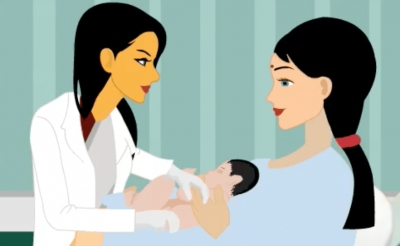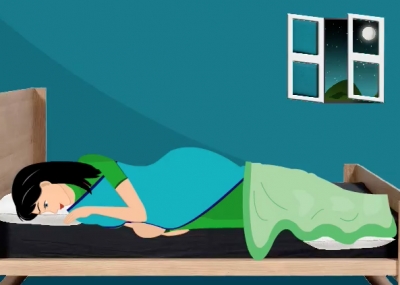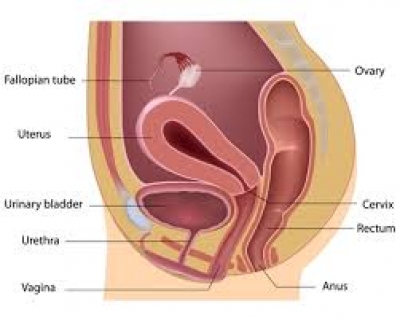The heart begins to be formed by the 4th week of pregnancy but the beating of the heart is heard, only through an ultrasound examination. The baby's heart rate is almost double that of a resting adult rate. It starts at 6 weeks at around 100 beats per minute and peaks by 9 weeks to as high as 175 to 180 beats per minute. It gradually decreases to around 150 to 160 when the fetus reaches the term. When the baby has a heart rate less than 100 beats per minute in the first trimester, than it could be a cause for concern. The mother is monitored with weekly ultrasound and if the heart rate does not increase then most of the time the pregnancy could lead to a miscarriage. When pregnancies miscarry after the detection of a slowed fetal heart rate most of the time the cause is a chromosomal abnormality. In some cases however the heart rate may normalise and the pregnancy may continue normally.
It takes between 18 and 20 weeks to hear the baby's heartbeat using a fetoscope. Fetal heart rate changes during various stages of pregnancy and during various activities like sleeping, movements etc - Just like your heart rate also changes when you exercise or when you are stressed. There is usually a slowing of the normal fetal heart rate in the last few weeks of pregnancy.
Fetal heart rate monitoring thus is a good tool to monitor the well being of the baby.






